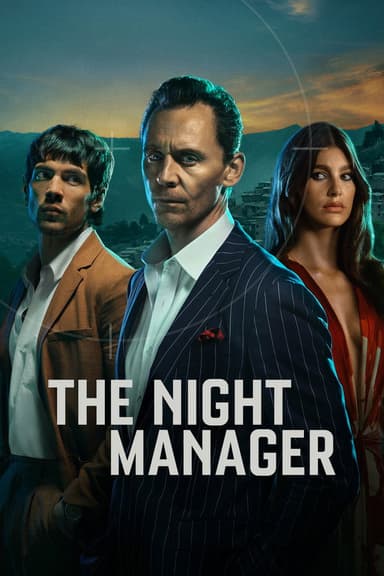
Fortunes of War
1987 • Drama
Fortunes of War is a 1987 BBC miniseries adaptation of Olivia Manning's cycle of novels of the same name. English literature lecturer Guy Pringle and his wife Harriet navigate the early years of WWII in Bucharest. They become involved in anti-fascist politics and are forced to flee as the war escalates, crossing paths with various characters along the way.
Starring an ensemble cast led by Kenneth Branagh and Emma Thompson, the seven-part series follows its source material relatively faithfully, with no major plot departures.
Why you should read the novels
Step into a world painted with exquisite literary detail by reading Olivia Manning's The Balkan Trilogy and The Levant Trilogy, the acclaimed source novels for Fortunes of War. Manning’s novels transport readers beyond the limits of the screen, immersing you in a more intimate and intricate portrayal of life during wartime Europe and the Middle East. Within these pages, character development is richer, perspectives deeper, and the psychological landscapes far more nuanced than a visual adaptation can offer.
Each novel provides a thoughtful exploration of identity, displacement, and the relentless uncertainty of war from the perspective of Harriett and Guy Pringle. Manning’s insightful prose delves into the subtleties of relationships, the atmosphere of foreign cultures, and the shifting dynamics of loyalty and love in perilous times. These perspectives are often condensed or overlooked in the television version, making the novels an essential journey for readers who crave more profound connections with the characters.
Choosing the books over the series allows you to savor Manning’s beautiful language, keen observations, and authentic depictions of place and character. For anyone yearning for a multi-faceted, at times philosophical examination of people under pressure, the trilogies offer an unforgettable experience that not only enhances the TV adaptation but also stands alone as a masterwork of 20th-century literature.
Adaptation differences
One of the primary differences between the TV adaptation and the novels lies in the pacing and detail with which Manning writes. While the series must condense events and relationships for time constraints, the books luxuriate in small moments and internal monologues, providing a more layered understanding of the characters’ fears, motivations, and evolving personalities. Scenes that pass quickly onscreen often unfold over several chapters in the books, giving readers deeper insights into their significance and emotional impact.
Another notable difference is the treatment of secondary characters and their arcs. In the novels, Olivia Manning spends significant time developing supporting cast members, weaving their personal histories and conflicts into the broader narrative. The TV adaptation, by necessity, streamlines or omits several of these stories, focusing more narrowly on Harriett and Guy Pringle. As a result, some subplots — and the moral ambiguities they raise — are far more complex and satisfying in the books.
Furthermore, Manning’s evocative prose captures the sense of place—Bucharest, Athens, Cairo—that is harder to replicate on screen. Her descriptions evoke the sensory richness and chaotic energy of wartime cities, immersing readers in sights, smells, and political climates in a way that complements but often surpasses the visual depiction. The books offer background and context that foster a fuller appreciation of the settings and the historical moment.
Finally, the novels’ introspective tone and the subjective point of view, especially through Harriett’s lens, create a more intimate experience. While Emma Thompson’s portrayal is praised for its subtlety, the TV series sometimes externalizes internal conflicts, losing some of the psychological depth Manning achieved with her narrative voice. The books allow us to accompany Harriett not only during the external chaos but also through her internal struggles and growth, offering resonance that the adaptation, though faithful in spirit, can only partially capture.
Fortunes of War inspired from
The Levant Trilogy
by Olivia Manning
The Balkan Trilogy
by Olivia Manning




